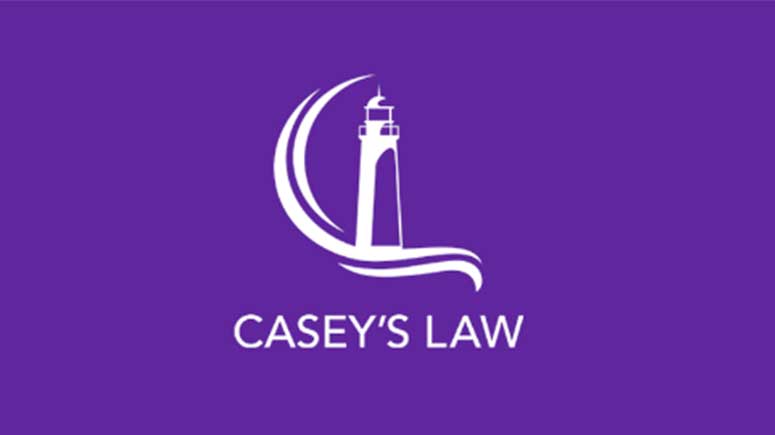How To Use Casey’s Law In Ohio

Medically Reviewed By: Manish Mishra, MBBS

Written by: Dr Jason Martin Psy.D., LCPC
Many Ohio residents live with drug addiction. While this disease is treatable, some people refuse to seek treatment. In Ohio, you can help your loved one recover from addiction by using Casey’s Law. This law allows you to petition the court to order a loved one to attend rehab.

Drug addiction (also called substance use disorder) is a treatable condition. However, some people refuse to seek treatment. If your loved one seems resistant to rehab, you may feel hopeless.
Fortunately, you have options to help them get treatment. In Ohio, one of these options is called Casey’s Law.
What Is Casey’s Law?
Casey’s Law (also known as the Matthew Casey Wehting Act for Substance Abuse Intervention) is a law that allows you to petition the court to order a loved one to attend an addiction treatment program.
The court will only grant your petition if your loved one meets three criteria:
- They must have substance use disorder.
- They must present a danger to themselves, their family, or others as a result of their drug abuse, or there must be a substantial possibility that they will present such a danger in the near future.
- They could reasonably benefit from an addiction treatment program.
The law was named after Matthew Casey Wethington, a 23-year-old man who died of a heroin overdose in 2002 after refusing addiction treatment. It was enacted in Kentucky in 2004 and in Ohio in 2012.
Few Ohioans used Casey’s Law until 2021, when it was made simpler through an update.
Before the update, you had to pay a filing fee and get your loved one to agree to a physical examination. Also, if the court granted your petition, you had to pay half the cost of treatment upfront. Today, the process is much easier.
How To Use Casey’s Law
If you think your loved one meets the criteria for Casey’s Law, contact your county probate court and ask how to file a petition.
In some counties, you will be given paperwork to file a Casey’s Law petition yourself. In other counties, you will be referred to a lawyer who can help you file the petition.
After the petition is filed, the court will schedule a hearing.
At the court hearing, a judge will evaluate the evidence that your loved one needs addiction treatment. You and your loved one may each have a lawyer present at the hearing if desired. If your loved one can’t afford a lawyer, the court can appoint one for them.
If the judge determines that your loved one meets the criteria for Casey’s Law, they will be ordered to attend an addiction treatment program.
As the petitioner, you will be responsible for all court fees, lawyer fees, and the cost of your loved one’s treatment.
If your loved one has health insurance or Medicaid, you might be able to use it to help pay for treatment. However, this depends on the county you live in. To learn more about paying for court-ordered treatment under Casey’s Law, contact your county probate court.
Advantages Of Casey’s Law
Some people would never seek addiction treatment if it were not ordered by a court. Thus, Casey’s Law could save your loved one’s life by getting them on the road to addiction recovery.
Also, unlike other forms of court-ordered addiction treatment, treatment under Casey’s Law does not pose a risk of criminal charges.
If your loved one fails to attend treatment, they may be held in contempt and arrested, but they won’t be charged with a crime. By avoiding a criminal record, they will find it much easier to get a job or a home later in their recovery journey.
Disadvantages Of Casey’s Law
While involuntary treatment can be necessary and life-saving, it’s not always an effective path toward long-term recovery. Some people will not fully commit themselves to treatment until they seek it on their own.
In other words, although Casey’s Law can get your loved one into rehab, you may need to take other steps to help them achieve long-term sobriety.
For example, you could stage an intervention.
What’s An Intervention?
An intervention is a planned discussion in which a person’s family members and friends confront them about their addiction. The discussion may also involve mental health counselors, interventionists, or other professionals.
During the intervention, you and the other participants will highlight specific problems caused by your loved one’s addiction. You will also present a prearranged, long-term recovery plan that you want your loved one to follow.
Finally, you will explain the consequences your loved one will face if they don’t follow the recovery plan. For instance, you might stop supporting them financially or ask them to move out. These consequences can motivate your loved one to fully commit to treatment.
If you or someone you love struggles with addiction, please reach out to Ohio Recovery Center. Our inpatient treatment facilities offer medical detox, mental health counseling, and other evidence-based services to help you or your loved one stay drug-free.
- Casey’s Law — Casey's Law-OH/Steps https://caseyslaw.org/caseys-law-oh-steps/
- Cincinnati — Judge: I'm ready to 'save lives' with addiction treatment under Ohio's updated Casey's Law https://www.cincinnati.com/story/news/2021/09/02/judge-ready-save-lives-ohios-updated-caseys-law-hamilton-county/5694858001/
- Kentucky Office of Drug Control Policy — Casey's Law - Office of Drug Control Policy https://odcp.ky.gov/Resources/Pages/Caseys-Law.aspx

